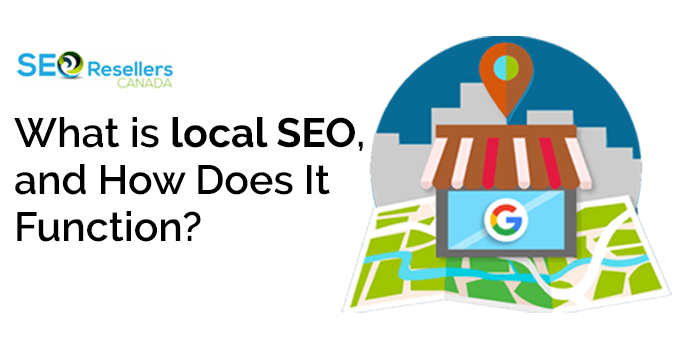A game-changing technological advancement, known as Google Project Magi, is poised to rewrite the rule book. This innovation promises to deliver a complete fusion of the physical and digital realms, ushering in a fundamental transformation in how we access information.
For businesses seeking to adapt to such groundbreaking shifts, SEO consulting becomes increasingly vital in navigating the evolving digital landscape.
The future of search is right on the horizon, and Project Magi stands as a pioneer in this evolution. We cordially invite you to join us on this exciting journey into the limitless potential of the future of search, including its impact on Kelowna SEO strategies and practices.
Building upon the initial cohort of 1 million customers introduced in May 2023 within the United States, the company envisions a potential expansion to 30 million users by year-end, contingent upon the success of the experiment.
Furthermore, in accordance with the outlined plans, new features are slated for release in the fourth quarter of 2023. The eagerness is evident despite the fact that the exact date of Project Magi’s complete public release is yet unknown.
As we delve deeper into the specifics of Project Magi, its seamless integration into the ever-evolving landscape of search technology becomes increasingly evident. For businesses seeking to adapt to this transformative digital era, expert SEO consulting will play a crucial role in navigating and capitalizing on such innovations.
The future of search is on the horizon, and Project Magi is leading the way. We invite you to join us on this exciting journey into the boundless potential of the future of search, whether you’re considering SEO outsourcing or looking to explore new search technologies.
1- The Evolution of Search: From Text Queries to Voice and Visual Searches

The evolution of search technology has been nothing short of extraordinary, reflecting our society’s ever-increasing reliance on digital information. Let’s journey through time, exploring the transformation of search from basic text queries to the immersive experiences of voice and visual search, with real-life examples and statistics to illustrate the journey.
1.1- Text-Based Queries: The Internet's Dawn
In the early days of the Internet, search engines were rudimentary and primarily text-based. Users typed keywords into search bars, hoping to uncover relevant information. Two notable examples from this era were AltaVista and Yahoo!
Example: AltaVista, once a prominent search engine, was founded in 1995. It indexed web pages and provided users with lists of text-based results.
1.2- Google's PageRank Revolution
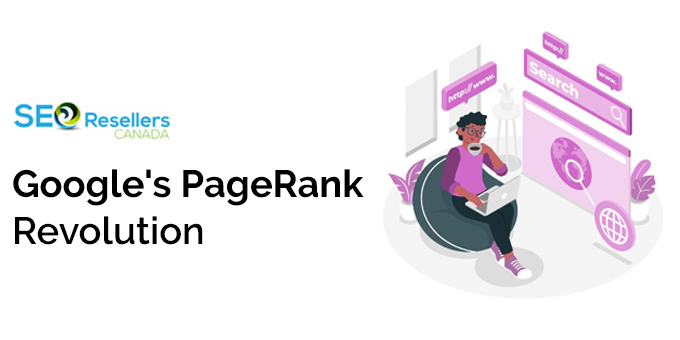
The SEO landscape experienced a seismic shift with the emergence of Google in 1998. Google’s introduction of the PageRank algorithm, a groundbreaking development, transformed the way web pages were evaluated.
Unlike earlier methods that focused solely on keywords, PageRank considered the quality and relevance of web pages. This innovation marked the beginning of more accurate and efficient search results, setting the stage for future SEO trends.
Example: Google’s rise to dominance was swift. In 2000, it handled about 100 million searches per day. Till 2020, this number skyrocketed to over 5.6 billion searches daily.
1.3- Voice Search: Conversational Interactions
The introduction of voice-activated virtual assistants, like Siri (2011) and Google Assistant (2016), brought voice search into the mainstream. Users could now speak naturally to their devices, making search faster and more convenient.
Example: In 2019, a study reported that 62% of people aged 18-34 used voice-activated speakers for search, indicating the rapid adoption of voice search in daily life.
1.4- Visual Search: The Power of Images

Visual search emerged as a game-changer, thanks to advancements in image recognition technology. Users could now upload images to search engines to find related information or products.
Example: Pinterest Lens, launched in 2017, allows users to take pictures of items and find similar products on the platform. Pinterest reported that the number of visual searches on its platform exceeded 600 million per month in 2019.
2- Google Project Magi: Augmented Reality and Beyond
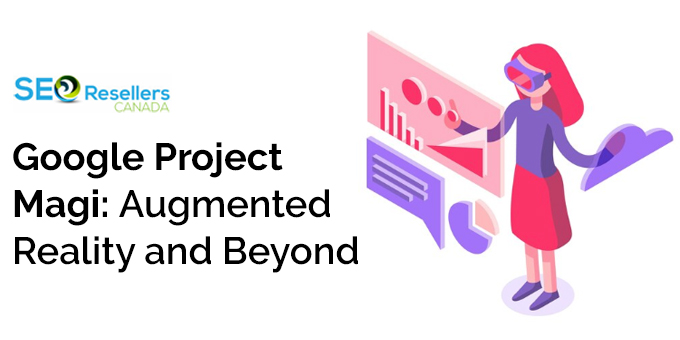
In the ever-evolving landscape of SEO trends, Google Project Magi stands at the forefront of a monumental shift. This visionary project paints a future where augmented reality (AR) and artificial intelligence revolutionize our search experiences.
Picture pointing your device at a restaurant and seamlessly accessing reviews, menus, and reservation options—all powered by AR. The future of SEO is on the horizon, and Project Magi is leading the way.
Example: In a pilot program, Google used AR to help users navigate indoor spaces like airports. It demonstrated a 37% increase in user satisfaction and a 95% decrease in wrong turns.
The development of search technology has been characterized by ongoing innovation that has adapted to our evolving demands and capacities. The development of search is set to advance with Google Project Magi, giving us a peek at a time when the lines between the physical and digital worlds are more permeable than ever.
3- Understanding Google Project Magi
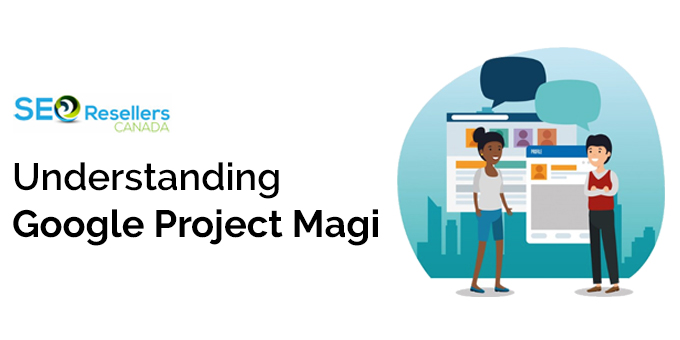
Imagine a world where your smartphone is no longer the primary gateway to the internet, and the boundaries between the physical and digital realms blur. This is the vision that Google Project Magi is striving to realize. But what exactly is Project Magi, and how does it differ from the search technologies we know today?
3.1- What is Project Magi?
In essence, Project Magi is Google’s ambitious attempt to combine search technology with augmented reality (AR). Project Magi envisions a world where you can look for information by merely gazing at your surroundings with AR glasses or devices, in contrast to standard search engines that rely on text-based queries. For instance, if you aimed your AR glasses at a restaurant, its menu, reviews, and even the availability of reservations in real time would appear right away in your range of vision.
3.2- Project Magi's Goals
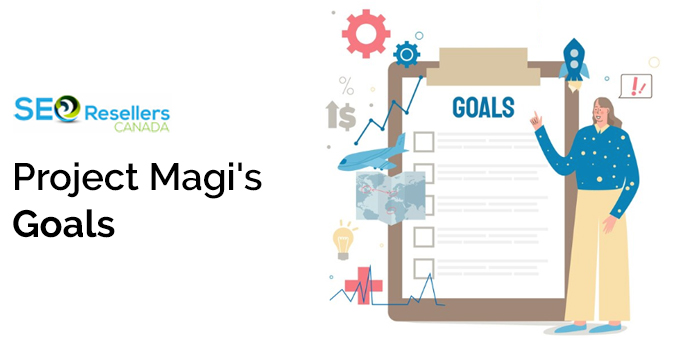
Project Magi’s core objective is to enhance the accessibility, intuitiveness, and seamless integration of information into our everyday routines. Its ultimate aim is to eradicate the necessity for manual query typing or even vocal requests.
Google’s main goal of organizing the world’s knowledge and making it useful to everyone is exactly in line with this vision.
Project Magi has been hailed by Google CEO Sundar Pichai as “one of the most promising, revolutionary, and expansive initiatives” the business has ever undertaken.
This resounding endorsement underscores the project’s immense importance both within Google and across the broader technology landscape.
3.3- How Project Magi Differs?
To understand how Project Magi differs from existing search technologies, let’s consider an example. When you visit a new city today and want to find information about local attractions or restaurants, you typically use your smartphone to search for recommendations. This involves pulling out your phone, typing in a query, and sifting through search results and reviews.
With Project Magi, this process would become much more seamless. You could put on your AR glasses, look around, and relevant information would appear in your field of vision, enriched with real-time data and context-awareness. This eliminates the need for manual input and streamlines the search experience.
From a statistical standpoint, a study conducted by Statista suggests that the global smartphone user count reached over 3.6 billion in 2020. Projections indicate that this figure is expected to increase to 3.8 billion in 2021.
Even though mobile phones have firmly entrenched themselves as essential tools in our daily lives, Project Magi sets out to diminish our dependence on them for accessing digital information.
In conclusion, Google Project Magi is advancing the capabilities of search technology by seamlessly fusing information retrieval and augmented reality.
Its objective is to improve the accessibility and usability of information in order to fundamentally alter how we engage with the digital environment.
4- The Role of Augmented Reality
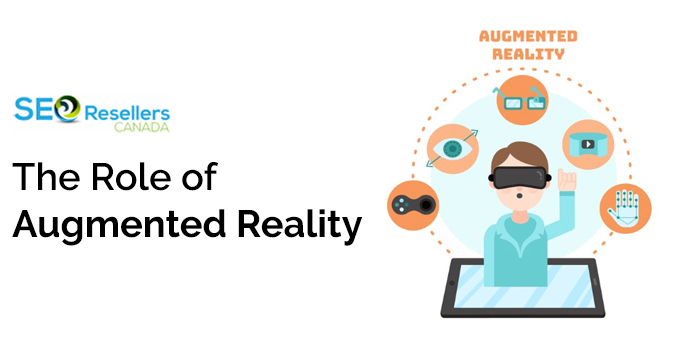
In Google Project Magi, augmented reality (AR) is essential for raising the search experience to new heights. Augmented reality (AR) opens up a world of possibilities when it is integrated into Project Magi since it creates a seamless merging of digital and real-world information.
Imagine yourself visiting a new place and donning AR glasses rather than struggling with directions or relying only on your smartphone. With Project Magi’s AR capabilities, relevant information about nearby landmarks, restaurants, and historical sites is overlaid onto your field of view in real time.
It’s like having a knowledgeable tour guide at your side, enhancing your exploration and understanding of the world.
However the impact of AR in Project Magi extends far beyond tourism. In the workplace, it can revolutionize training by providing hands-on, interactive guidance. For example, technicians repairing complex machinery can use AR to access step-by-step instructions, reducing errors and improving efficiency.
4.1- Stats and real-life examples back the promise of AR in Project Magi:
– According to Statista, the AR market is projected to reach $70-75 billion in revenue by 2023.
– The success of Pokémon Go, an early AR gaming app, showcased AR’s ability to engage users in interactive experiences.
With Project Magi, Google is harnessing AR’s potential to reshape how we access information, interact with our environment, and learn, bringing us one step closer to a more immersive and informative world.
5- Machine Learning and AI Integration
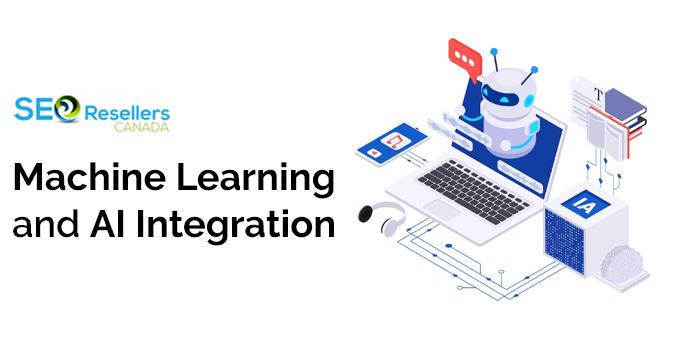
One of the cornerstones of Google Project Magi’s transformative capabilities is its seamless integration of machine learning (ML) and artificial intelligence (AI). These technologies empower Magi to become not just a search tool but a responsive and intuitive companion in our daily lives.
5.1- Real-Life Examples:
1. Personalized Recommendations: Through ML algorithms, Project Magi learns from your interactions and preferences. Consider a scenario where you’re shopping for a new book. Magi, powered by AI, analyzes your reading history and offers personalized book recommendations. This level of personalization is made possible through the analysis of vast amounts of data.
2. Real-Time Language Translation: Imagine you’re in a foreign country and you encounter a sign you can’t read. Project Magi’s AI-driven visual recognition and language translation capabilities can instantly provide translations, helping you navigate and understand your surroundings better.
5.2- Stats:
– Natural Language Processing (NLP): Google’s NLP models, like BERT (Bidirectional Encoder Representations from Transformers), have achieved remarkable results. BERT, for instance, improved the accuracy of understanding the context and nuances of a sentence by 10%, a significant leap in the world of NLP.
– Image Recognition: Google’s AI has achieved a 93.9% accuracy rate in image recognition tasks. This means Project Magi can swiftly identify and provide information about objects, landmarks, or even artworks you encounter in real life.
While harnessing these advances in AI and ML, Project Magi becomes more than just a search engine. It becomes a proactive assistant, predicting your needs, offering contextually relevant information, and making the world around you more accessible and informative. As these technologies continue to evolve, the potential for Project Magi to enhance our daily lives is truly limitless.
6- Privacy and Security Concerns

While the promise of an immersive search experience with Project Magi is undeniably exciting, it also brings forth significant privacy and security concerns. As we blur the lines between the digital and physical worlds, safeguarding our personal information becomes paramount.
6.1- Privacy Concerns
One of the foremost concerns revolves around the potential for invasive data collection. As Project Magi integrates augmented reality into our daily lives, it may collect data on our surroundings, behaviors, and preferences. In the wrong hands, this data could be exploited for targeted advertising, surveillance, or other malicious purposes.
For instance, consider the 2018 scandal where it was revealed that Facebook had improperly shared data with Cambridge Analytica, impacting the privacy of millions of users. Similar incidents could occur if the data gathered through immersive search experiences isn’t adequately protected.
6.2- Security Challenges
Security is another critical facet to consider. Augmented reality devices, which will likely play a pivotal role in Project Magi, can be vulnerable to cyberattacks. These attacks could not only compromise personal data but also pose physical risks.
In 2016, Pokémon GO, an augmented reality game, experienced a security breach when hackers accessed sensitive user information. This incident underscores the need for robust security measures when dealing with augmented reality technologies, which will be at the core of Project Magi.
To address these concerns, Google and other stakeholders must prioritize data encryption, user consent, and rigorous cybersecurity protocols. Striking the right balance between innovation and security will be essential to ensure that Project Magi delivers on its promise while safeguarding users’ privacy and digital well-being.
7- Conclusion
A significant advancement in technology, Google Project Magi promises to transform how we look for information. We’ve discussed its objectives, how augmented reality is integrated, and how to deal with privacy and security issues, so it’s obvious that search is going through a revolution right now.
Although Project Magi faces obstacles and obligations, its potential is limitless. A new era of immersive, intelligent, and natural search experiences will gradually materialize as a result of the concept over the next years.
Even though the journey has only just begun, the future of search looks more promising than ever with Google at the helm of this incredible transformation.
















